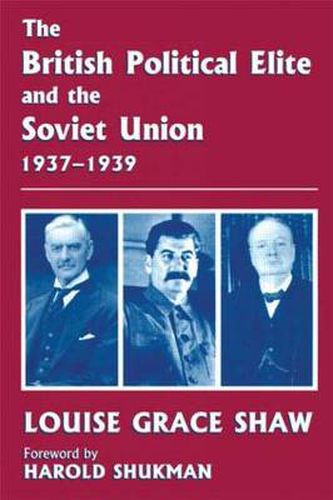Readings Newsletter
Become a Readings Member to make your shopping experience even easier.
Sign in or sign up for free!
You’re not far away from qualifying for FREE standard shipping within Australia
You’ve qualified for FREE standard shipping within Australia
The cart is loading…






Private papers, diaries and memoirs, as well as official government and Foreign Office records are used within this book to produce a detailed critical analysis of the attitudes of the British political elite towards the Soviet Union, which assesses the influence such attitudes had upon British foreign policy between May 1937 and August 1939. The British political elite in this book includes members of the Cabinet, Foreign Policy, Committee and Chiefs of Staff, Foreign Office Officials, ambassadors and diplomats, and those members of the Conservative Party and opposition elsewhere referred to as the anti-appeasers . This volume reveals how an alliance could have been, and so nearly was formed and how Britain’s loss of a Soviet ally was due to the unwillingness of certain ministers to put aside their anti-Soviet prejudices during the foreign-policy decision-making process.
$9.00 standard shipping within Australia
FREE standard shipping within Australia for orders over $100.00
Express & International shipping calculated at checkout
Private papers, diaries and memoirs, as well as official government and Foreign Office records are used within this book to produce a detailed critical analysis of the attitudes of the British political elite towards the Soviet Union, which assesses the influence such attitudes had upon British foreign policy between May 1937 and August 1939. The British political elite in this book includes members of the Cabinet, Foreign Policy, Committee and Chiefs of Staff, Foreign Office Officials, ambassadors and diplomats, and those members of the Conservative Party and opposition elsewhere referred to as the anti-appeasers . This volume reveals how an alliance could have been, and so nearly was formed and how Britain’s loss of a Soviet ally was due to the unwillingness of certain ministers to put aside their anti-Soviet prejudices during the foreign-policy decision-making process.